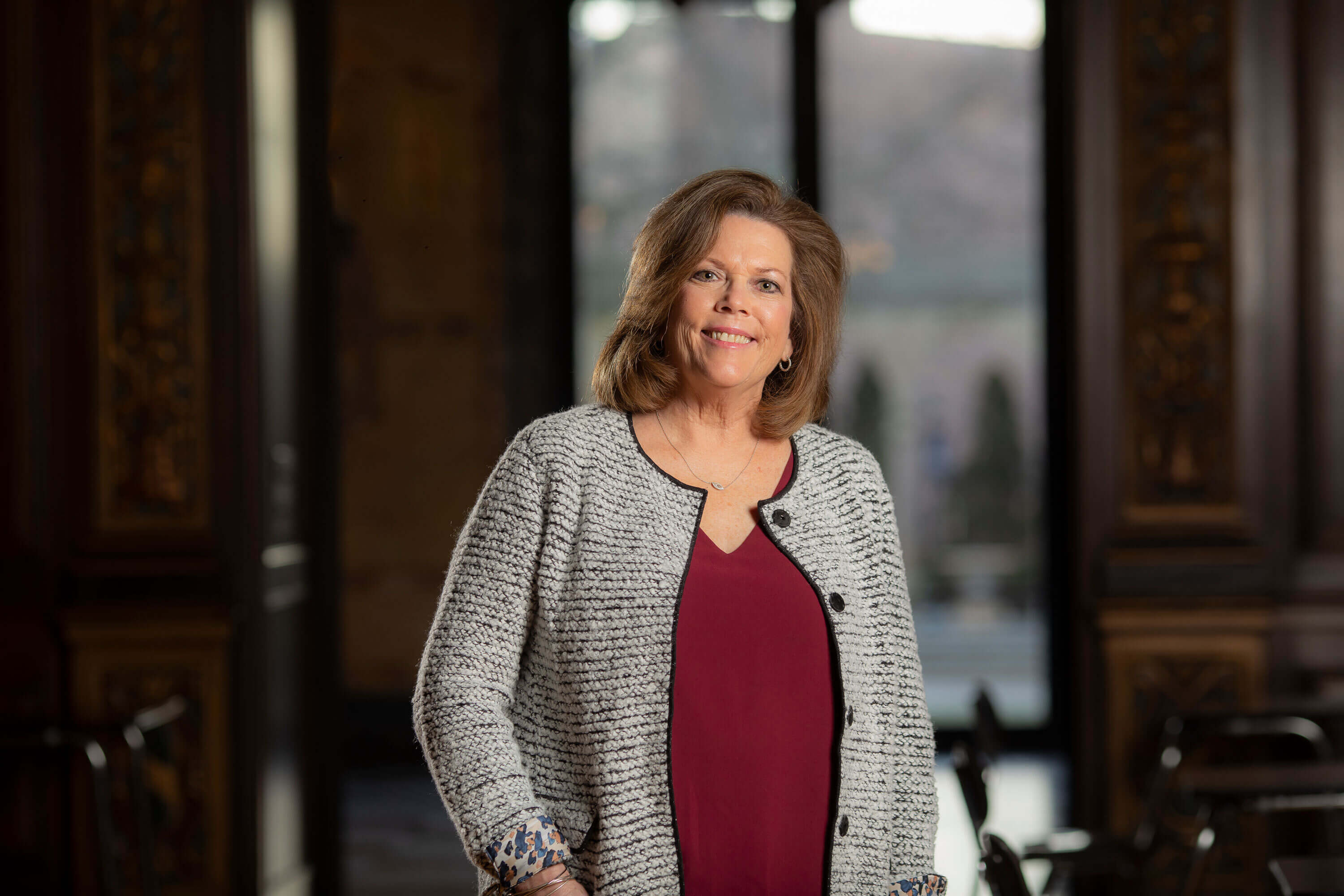
A Force for Change
From the school nurse’s office to the statehouse, Eileen Gavin is helping to shape how we tackle public health issues.
Confronting public health issues has always been a top priority for school nurses. During her 17 years working in the Middletown, New Jersey, school district, Eileen Gavin ’03, ’10M has helped students who were dealing with mental health issues, abusing drugs, and grappling with food scarcity at home. “Everything that happens in our communities is reflected in our schools,” says Gavin, “and school nurses have their hands on the pulse of it all.”
Never has that been more evident than the past year, as countless school nurses landed on the front lines of the COVID-19 response. They prepared school reopening plans, screened students for symptoms, and even contact-traced outbreaks. For Gavin personally, 2020 was also the year she threw herself deeper into effecting change, through both legislative efforts and COVID-19 strategies.
“When I see something that’s not working correctly, I always want to change it,” she says. “Whether it’s systematic or just personally, I want to see how we can do it better.”
Gavin has been a nurse since 1983, but her state-level activism ignited in 2014, shortly after she participated in a health leadership program through Johnson & Johnson. The opioid epidemic was surging, and she’d been hearing from parents who were terrified that their kids might overdose.
She wanted the opioid reversal drug Narcan available in schools. With support from her then-superintendent William George ’97M—now a Teaching Fellow at the University—Gavin developed Narcan protocols and procedures for her own district that were later replicated throughout the state. She also advocated for legislation requiring that Narcan be made available in all New Jersey high schools. “That kind of propelled me into the limelight as an expert,” she says now.
She was ready for it, thanks in part to her multiple degrees from Monmouth. Gavin completed her B.S. in nursing in 2003 and continued on to a Master’s of School Nursing degree, followed by a Post-Master’s Certificate in Advanced Practice Nursing, all while working as a nurse, volunteering at a clinic for uninsured patients, and raising her three children.
“Monmouth is a small school, and I was an adult learner going to class with younger students, so I could have easily been discouraged,” she says. “But I was very much encouraged and promoted by the faculty to be a change agent.” That support and recognition she received from nursing faculty members, particularly Associate Professor Laura Jannone, gave her the confidence to take on the state-level advocacy work, she says.
When the pandemic struck last March, Gavin worked with her local health department to develop a training video and webinar for school nurses across the state who, like her, were suddenly tasked with contact tracing.
As a legislative co-chair for the New Jersey State School Nurse Executive Board, she also urged State Senator Theresa Ruiz to propose a state-level school nurse consultant position—something 44 other states already had in place. Ruiz wrote the proposal and Gavin testified on it multiple times. Gov. Phil Murphy signed the bill into law on Sept. 14, 2020. “To be part of legislation from conception to when it’s passed is probably one of the highest honors,” says Gavin.
In the final days of 2020, Gavin was reflecting on these bright spots within a tumultuous year—and preparing to administer COVID vaccines as a volunteer through the Monmouth County Health Department’s Medical Reserve Corps. Whether she’s working inside a school, testifying in the State Senate, or soon, administering life-saving vaccines to people in New Jersey, “I’m a nurse every day, 24/7,” she says. “People are always texting me, emailing me questions. Neighbors even come to my door if their child is hurt. Being a nurse is just part of my DNA. It’s a sense of service, and I think a lot of nurses have that in them.”